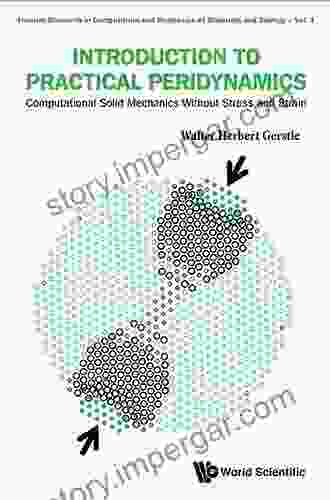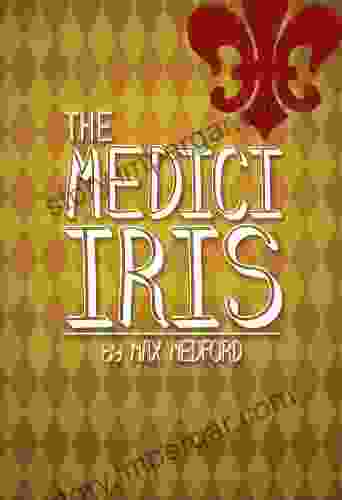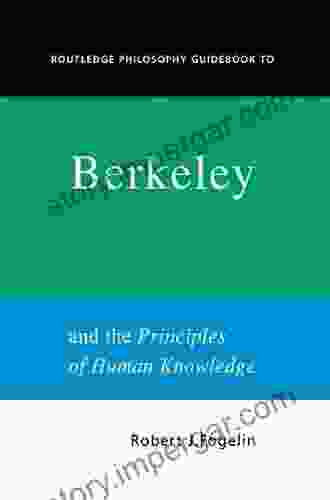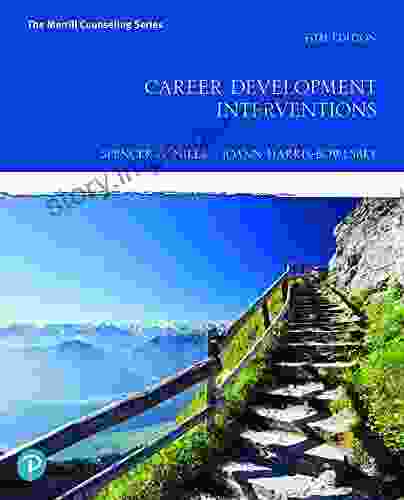Routledge Philosophy Guidebook To Berkeley And The Principles Of Human Knowledge: Your Essential Guide to the Idealist Philosopher

Welcome to the Routledge Philosophy Guidebook to Berkeley and the Principles of Human Knowledge. This comprehensive guidebook will provide you with everything you need to know about one of the most important and influential philosophers in Western history, George Berkeley.
Berkeley was an Irish philosopher who lived in the 18th century. He is best known for his theory of idealism, which argues that the physical world does not exist independently of our minds. Instead, Berkeley believed that all objects are merely ideas in our minds.
5 out of 5
| Language | : | English |
| File size | : | 438 KB |
| Text-to-Speech | : | Enabled |
| Screen Reader | : | Supported |
| Enhanced typesetting | : | Enabled |
| Word Wise | : | Enabled |
| Print length | : | 140 pages |
Berkeley's theory of idealism had a profound impact on philosophy. It challenged the traditional view of the world as an objective reality and raised questions about the nature of reality, knowledge, and perception.
In this guidebook, we will explore Berkeley's philosophy in depth. We will examine his arguments for idealism, his theory of knowledge, and his ethical and religious views. We will also discuss the influence of Berkeley's philosophy on later thinkers, such as David Hume and Immanuel Kant.
Chapter 1: Berkeley's Life and Times
George Berkeley was born in 1685 in Kilkenny, Ireland. He was the son of a wealthy Protestant family. Berkeley was a precocious child and showed an early interest in philosophy.
Berkeley attended Trinity College Dublin, where he studied philosophy and mathematics. He graduated with a Master's degree in 1707. After graduating from Trinity College, Berkeley traveled to England, where he met some of the leading philosophers of the day, such as John Locke and Samuel Clarke.
In 1710, Berkeley published his first major work, A Treatise Concerning the Principles of Human Knowledge. In this work, Berkeley argued for his theory of idealism. Berkeley's theory of idealism was controversial, but it quickly gained a following among philosophers.
In 1713, Berkeley became a chaplain to the Lord Lieutenant of Ireland. He served in this position for three years. During this time, Berkeley wrote a number of works on religion and ethics.
In 1724, Berkeley was appointed Dean of Derry. He served in this position for the rest of his life. Berkeley died in 1753 at the age of 68.
Chapter 2: Berkeley's Theory of Idealism
Berkeley's theory of idealism is one of the most important and influential philosophical theories ever proposed. Berkeley argued that the physical world does not exist independently of our minds. Instead, Berkeley believed that all objects are merely ideas in our minds.
Berkeley's theory of idealism is based on two main arguments. The first argument is the argument from perception. Berkeley argued that the only things we can directly perceive are our own ideas. We cannot directly perceive the physical world. We can only perceive our ideas of the physical world.
Berkeley's second argument for idealism is the argument from the impossibility of matter. Berkeley argued that it is impossible for matter to exist independently of our minds. Matter is extended, but our minds are not extended. Matter is divisible, but our minds are not divisible. Therefore, matter cannot exist independently of our minds.
Berkeley's theory of idealism has a number of implications. First, it implies that the physical world is not real. The physical world is merely an idea in our minds. Second, it implies that there is no such thing as objective reality. Reality is subjective. It is whatever we perceive it to be.
Chapter 3: Berkeley's Theory of Knowledge
Berkeley's theory of knowledge is closely related to his theory of idealism. Berkeley believed that all knowledge is derived from our own ideas. We cannot have knowledge of the physical world because the physical world does not exist independently of our minds. We can only have knowledge of our own ideas.
Berkeley's theory of knowledge has a number of implications. First, it implies that all knowledge is subjective. Knowledge is not objective. It is whatever we perceive it to be. Second, it implies that there is no such thing as absolute truth. Truth is relative. It is whatever we believe to be true.
Chapter 4: Berkeley's Ethical and Religious Views
Berkeley was a devout Christian. He believed that God is the creator of the universe. Berkeley also believed that God is good and that the universe is designed for our good.
Berkeley's ethical views are based on his religious beliefs. Berkeley believed that the highest good is to love God and to serve others. Berkeley also believed that we should live in accordance with the laws of nature.
Chapter 5: The Influence of Berkeley's Philosophy
Berkeley's philosophy has had a profound impact on later thinkers. His theory of idealism was a major influence on David Hume and Immanuel Kant. Hume's theory of skepticism is based on Berkeley's theory of idealism. Kant's theory of transcendental idealism is also based on Berkeley's theory of idealism.
Berkeley's philosophy has also been influential in the fields of religion, ethics, and politics. Berkeley's religious views have influenced the development of Protestant theology. Berkeley's ethical views have influenced the development of Christian ethics. Berkeley's political views have influenced the development of democratic theory.
George Berkeley was one of the most important and influential philosophers in Western history. His theory of idealism is one of the most important and influential philosophical theories ever proposed. Berkeley's philosophy has had a profound impact on later thinkers and continues to be debated today.
This guidebook has provided you with a comprehensive overview of Berkeley's philosophy. We have examined his arguments for idealism, his theory of knowledge, and his ethical and religious views. We have also discussed the influence of Berkeley's philosophy on later thinkers.
I hope this guidebook has been helpful. If you have any questions about Berkeley's philosophy, please feel free to contact me.
Thank you for reading!
5 out of 5
| Language | : | English |
| File size | : | 438 KB |
| Text-to-Speech | : | Enabled |
| Screen Reader | : | Supported |
| Enhanced typesetting | : | Enabled |
| Word Wise | : | Enabled |
| Print length | : | 140 pages |
Do you want to contribute by writing guest posts on this blog?
Please contact us and send us a resume of previous articles that you have written.
 Book
Book Novel
Novel Page
Page Chapter
Chapter Text
Text Story
Story Genre
Genre Reader
Reader Library
Library Paperback
Paperback E-book
E-book Magazine
Magazine Newspaper
Newspaper Paragraph
Paragraph Sentence
Sentence Bookmark
Bookmark Shelf
Shelf Glossary
Glossary Bibliography
Bibliography Foreword
Foreword Preface
Preface Synopsis
Synopsis Annotation
Annotation Footnote
Footnote Manuscript
Manuscript Scroll
Scroll Codex
Codex Tome
Tome Bestseller
Bestseller Classics
Classics Library card
Library card Narrative
Narrative Biography
Biography Autobiography
Autobiography Memoir
Memoir Reference
Reference Encyclopedia
Encyclopedia Marianne Williamson
Marianne Williamson Marsha Hunter
Marsha Hunter Martin R Phillips
Martin R Phillips Mark A Snell
Mark A Snell Phil Keith
Phil Keith Ray Makar
Ray Makar Mathew Abbott
Mathew Abbott Mani Karnika
Mani Karnika Washington Gladden
Washington Gladden Steve King
Steve King Meg Daley Olmert
Meg Daley Olmert Ruella Frank
Ruella Frank Marcia Masino
Marcia Masino Paul Robeson
Paul Robeson Preston Lerner
Preston Lerner Paul Doherty
Paul Doherty Tracy Crow
Tracy Crow Pieter Van Schalkwyk
Pieter Van Schalkwyk Mark Day
Mark Day Marilyn Yalom
Marilyn Yalom
Light bulbAdvertise smarter! Our strategic ad space ensures maximum exposure. Reserve your spot today!

 Andy HayesIntroduction to Practical Peridynamics: Transforming the Analysis of Material...
Andy HayesIntroduction to Practical Peridynamics: Transforming the Analysis of Material... Carl WalkerFollow ·6.3k
Carl WalkerFollow ·6.3k Isaias BlairFollow ·4.6k
Isaias BlairFollow ·4.6k Brady MitchellFollow ·19.5k
Brady MitchellFollow ·19.5k Jaime MitchellFollow ·8.5k
Jaime MitchellFollow ·8.5k Floyd RichardsonFollow ·4.2k
Floyd RichardsonFollow ·4.2k Israel BellFollow ·3.6k
Israel BellFollow ·3.6k Isaac AsimovFollow ·12.5k
Isaac AsimovFollow ·12.5k William PowellFollow ·19.5k
William PowellFollow ·19.5k

 Roberto Bolaño
Roberto BolañoUnveiling the Beauty and History of the Medici Iris: A...
In the realm of...

 Theodore Mitchell
Theodore MitchellImproving Gut Health in Poultry: Unlocking the Path to...
In the ever-evolving field of...

 Victor Hugo
Victor HugoPersonalized Medicine with a Nanochemistry Twist:...
The future of healthcare...

 George Martin
George MartinA Year Of Wine: Perfect Pairings Great Buys And What To...
## Year of Wine: An Epic Journey Through the...

 Tom Hayes
Tom HayesDelve into the Enigmatic World of Southern Africa's...
Embark on a captivating journey through the...
5 out of 5
| Language | : | English |
| File size | : | 438 KB |
| Text-to-Speech | : | Enabled |
| Screen Reader | : | Supported |
| Enhanced typesetting | : | Enabled |
| Word Wise | : | Enabled |
| Print length | : | 140 pages |












